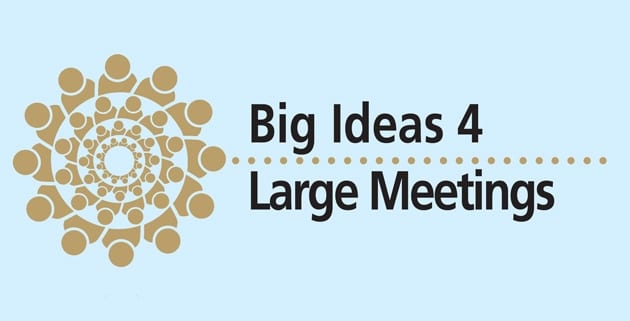All systems go for AFCON Tournament
The 2013 Africa Cup of Nations (AFCON), which kicks off in South Africa from 19 January to 10 February, will see 16 soccer teams from the Confederation of African Football (CAF) play a total of 32 matches at 5 host city stadiums and is expected to boost tourist arrival numbers from Africa, writes Des Langkilde.
At a National Assembly Parliamentary debate in August, South Africa’s Minister of Tourism, Mr. Marthinus van Schalkwyk was asked how he envisaged the hosting of the 2013 AFCON impacting on tourism growth and the hosting cities. “Recent studies on tourist numbers to South Africa have indicated that the African Continent is a key source market for visitors to South Africa. Therefore, by hosting the AFCON event, it will provide South Africa with an opportunity to raise the profile of the country to a number of African countries since the nature and focus of the AFCON event is specifically the African Continent. The broadcasting of games to various African countries will therefore raise the awareness of South Africa as a country but also as a tourist destination,” van Schalkwyk said. He added that South African Tourism, in partnership with the International Marketing Council, has developed a strategy to intensify its African marketing campaign in order to draw larger tourist numbers from the African Continent.
According to South African Tourism’s CEO, Thulani Nzima, the AFCON event will shore up the industry’s drop in arrivals from traditional markets, such as North America and Europe. “Traditional markets are not doing well and we have turned to Africa. By hosting the Africa Cup of Nations we are looking at increasing tourist numbers as people come to enjoy football,” Nzima said at a media briefing held at the ICC Durban in October. He added that there is ample proof that media coverage increases during tournaments such as the AFCON finals and that South Africa would begin an all out campaign to woo tourists from the continent with the introduction of new flight routes, among others.
The host city stadiums announced by the South African Football Association on 04 May are Durban’s Moses Mabhida Stadium with a capacity of 54,000; Port Elizabeth’s Nelson Mandela Bay Stadium with a capacity of 48,000; Nelspruit’s Mbombela Stadium with a capacity of 41,000; Rustenberg’s Royal Bafokeng Stadium with a capacity of 42,000 and Johannesburg’s Soccer City with a capacity of 94,700 where the opening and final matches will be played.
Durban’s eThekwini Municipality and the KwaZulu-Natal Provincial Government’s preparations for the AFCON Tournament were given the thumbs-up by the Tournament’s Local Organising Committee (LOC) CEO, Mvuzo Mbebe at a media briefing at Moses Mabhida Stadium on 19 November following the LOC’s visit to get an update on the City’s readiness to host the African football showpiece.
“EThekwini gave us a very detailed presentation that included their marketing, mobilisation and transport plans,” said Mbebe. “The City’s mobilisation plan covers the entire Province. The public transport plan that they have put in place will make it easy for people to come to the stadium. We are pleased with the plans that they have, from the traffic management, to security and risk management plan around the accommodation where the teams will be based.”
He urged fans to use the public transport system provided as opposed to private vehicles, as this will assist to ease congestion around the stadium on match days. “We have allocated parking for buses and taxis closer to the stadium, to accommodate people travelling in large numbers.”
Mbebe added that representatives of all four teams that will be based in Durban – Bafana Bafana, Angola, Cape Verde and Morocco – have inspected the hotels and training venues allocated to them for the tournament. “We are pleased to say that they were satisfied with the conditions, and are ready to start training in their base camps as soon as the New Year starts.” Mbebe claims that the event will create 18 600 jobs.
City Manager Sibusiso Sithole shared the same sentiments, assuring the public that the City and Province of KwaZulu-Natal had put together a plan that will ensure that it delivers a successful 2013 AFCON Tournament.
“We are having on-going meetings with different stakeholders to ensure that they are all part of this tournament and everybody is aware of the plans that have been put in place,” said Sithole. He said that the target was to sell 500 000 tickets and the LOC was confident that this will be achieved. So far, close to 40 000 tickets have been sold and requests for 20 000 more tickets have been received from the corporate sector.
The tournament kicks off on January 19 in Johannesburg and Durban will host its first match on 23 January 2013. Of the 32 matches to be played during the Tournament, 24 are in the qualifying stage, 4 in the quarterfinals, 2 in the Semifinals plus a third place play-off game and the final.
Match tickets can be purchased at selected Super Spars, or call 087 980 3000 or visit http://afcon2013.eqtickets.com/eQtickets/en/index.php.
The schedule of tournament dates and stadiums as released on 08 September 2012 can be found at http://en.wikipedia.org/wiki/2013_Africa_Cup_of_Nationsww.





